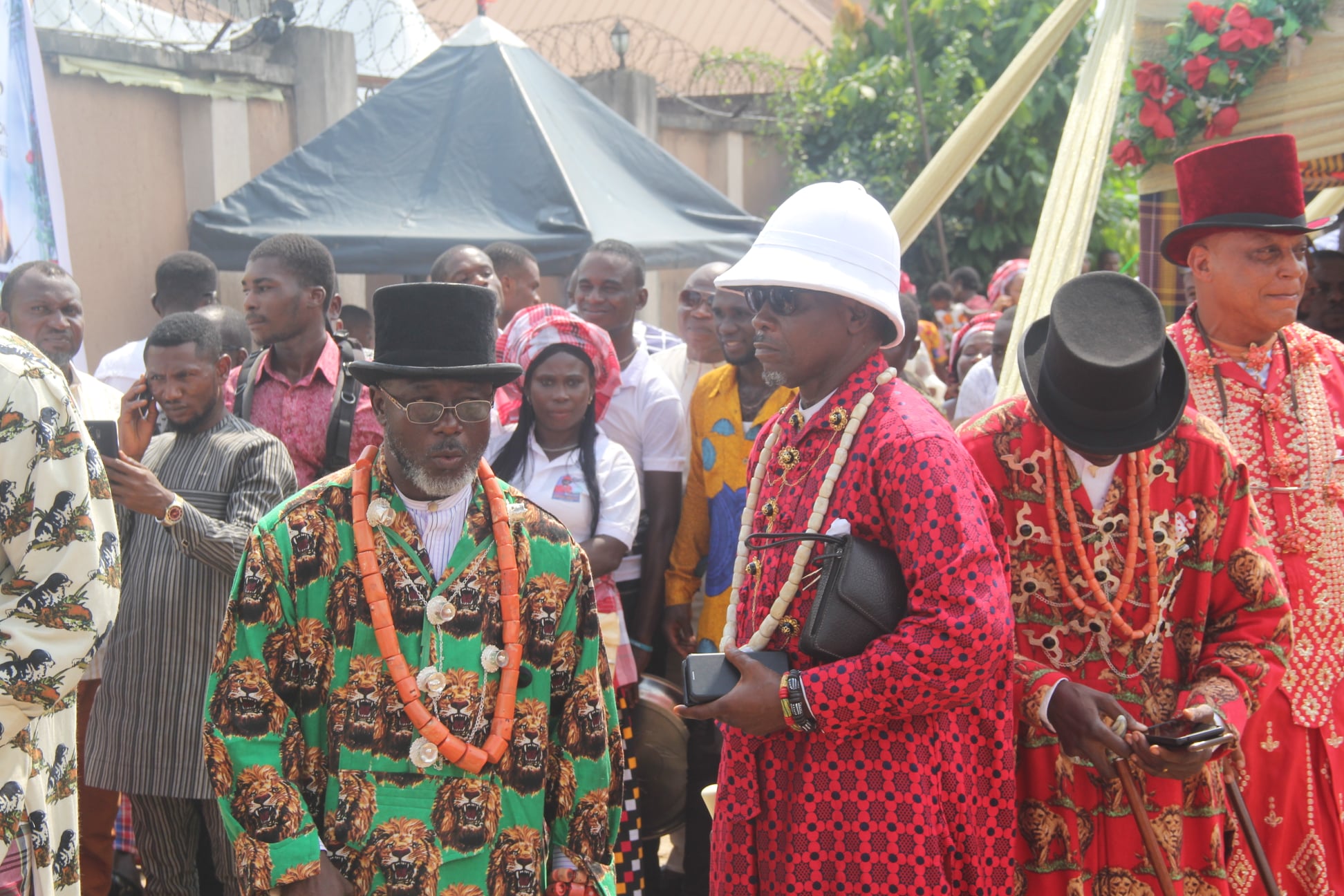Rivers
… Meets Tompolo, Ateke, Boyloaf, Others

The Administrator of the Presidential Amnesty Programme (PAP), Col. Milland Dixon Dikio (rtd), has launched a fresh initiative with five prominent former militant leaders in the Niger Delta as part of the effort to keep the peace in the oil producing region.
Dikio, met last Friday with the Amanyanabo of Okochiri in Okirika, Rivers State, King Ateke Tom; Chief Government Ekpemupolo alias Tompolo; Victor Ben Ebikabowei a.k.a. Boyloaf; and High Chief Ajube Bibopiri popularly called Shoot-at-Sight.
Sources said Tompolo was not physically present at the meeting but sent a representative.
The meeting took place at the palace of Ateke Tom in Okochiri.
The parley, according to sources, was aimed at averting a fresh crisis in the Niger Delta, following recent threats to upset the peace.
A source described the meeting as strategic, saying that the amnesty boss intimated the former warlords about the reforms in his office and the new direction of the programme.
He said Dikio reeled out the reasons for the failures of the scheme in the past and solicited their cooperation with a view to realising the main objectives of PAP.
He added that the amnesty boss emphasised the need to deepen the peace in the Niger Delta and tackle all the threats in the region, insisting that President Muhammadu Buhari and the National Security Adviser (NSA) desired an optimum performance for PAP.
The source said: “Dikio was more particular about sustaining the peace in the region. He insisted that without peace the region would not develop, and called on the Big Five to help in deepening the existing peace and eliminating all the threats in the region.
“It was a fruitful deliberation that strengthened the bond of brotherhood for the overall good of the Niger Delta.”
The source quoted the amnesty boss as saying: “This meeting is for us to sit down together in a friendly atmosphere and have a heart to heart discussion on the past, present and the future of PAP.”
The meeting was round off with a dinner.
One of the pioneers of PAP, Richard Akinika, confirmed the meeting and commended Dikio for consulting critical stakeholders, describing it as a step in the right direction.
He said the previous two administrators failed largely because they refused to undertake the first step of consulting the owners of the programme.
Rivers
VC Charges Students On Exam Malpractice, Other Vices … As IAUE Matriculates 8, 735


Rivers
Experts Urge Youth To Harness Talents For Global Success

Rivers
LANGUAGE BARRIER :STAKEHOLDERS URGES NSC TO FUND MULTILINGUAL STAFF AT BORDER STATIONS

-
Politics3 days ago
2027: NIGERIANS FAULT INEC ON DIGITAL MEMBERSHIP REGISTER DIRECTIVE
-

 Environment3 days ago
Environment3 days agoLAWMA Director Says Sweeping Reforms Have Improved Waste Collection
-
Politics3 days ago
LP Crisis: Ex-NWC Member Dumps Dumps Abure Faction
-

 Politics3 days ago
Politics3 days agoUmahi Dismisses Allegations On Social Media, Insists On Projects Delivery
-

 Sports3 days ago
Sports3 days agoAbia Not Sure To Secure continental Ticket
-
Sports3 days ago
La Liga: Yamal Records First Career Hat-trick
-
Politics3 days ago
NATASHA ELECTRIC VEHICLES INITIATIVE IN KOGI CENTRAL
-

 Sports3 days ago
Sports3 days agoPSG Extend Lead In Ligue 1

